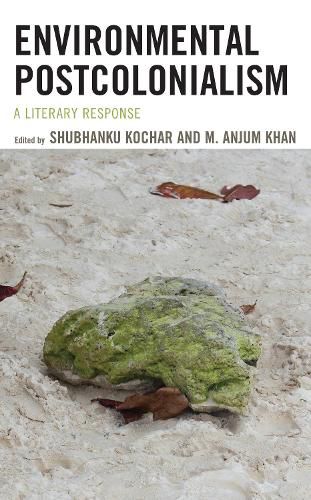Readings Newsletter
Become a Readings Member to make your shopping experience even easier.
Sign in or sign up for free!
You’re not far away from qualifying for FREE standard shipping within Australia
You’ve qualified for FREE standard shipping within Australia
The cart is loading…






Environmental Postcolonialism: A Literary Response is an academic investigation of the environmental repercussions of colonial destruction. This volume addresses the complex interplay between postcolonialism and environmental discourse through literature produced in the ex-colonies. This literature is read from the standpoint of ex-colonies within their human and non-human context. The primary objective of this volume is to scrutinize environmental concerns in the light of postcolonial theory, and so it examines works of art from the twin perspective of eco-criticism and postcolonialism which illuminates and underscores how colonizers destroyed and interfered with both nature and culture. Through discussing the intersecting layers of ecocriticism and postcolonial criticism, the volume gestures to new directions and generates a hopeful vision of a decolonized world.
$9.00 standard shipping within Australia
FREE standard shipping within Australia for orders over $100.00
Express & International shipping calculated at checkout
Stock availability can be subject to change without notice. We recommend calling the shop or contacting our online team to check availability of low stock items. Please see our Shopping Online page for more details.
Environmental Postcolonialism: A Literary Response is an academic investigation of the environmental repercussions of colonial destruction. This volume addresses the complex interplay between postcolonialism and environmental discourse through literature produced in the ex-colonies. This literature is read from the standpoint of ex-colonies within their human and non-human context. The primary objective of this volume is to scrutinize environmental concerns in the light of postcolonial theory, and so it examines works of art from the twin perspective of eco-criticism and postcolonialism which illuminates and underscores how colonizers destroyed and interfered with both nature and culture. Through discussing the intersecting layers of ecocriticism and postcolonial criticism, the volume gestures to new directions and generates a hopeful vision of a decolonized world.